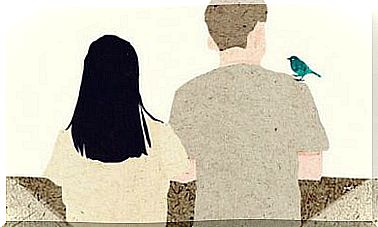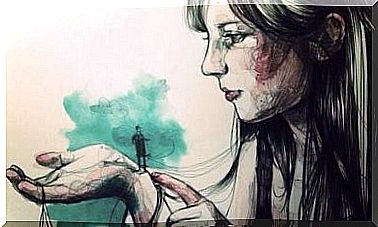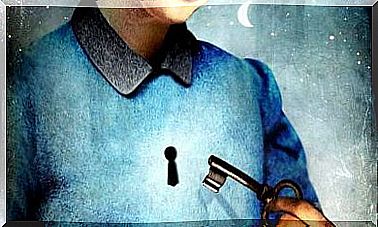When For Fear Of Conflict We Leave Room For Injustice

We face situations that can potentially lead to conflict every day. You are in line and suddenly someone, pretending nothing, tries to overtake you or the shopkeeper tries to make you pay too much for something that is worth much less or your boss assigns you an impossible task, because he woke up with a bad moon.
We all have the freedom to choose which of these conflict situations to respond to. Sometimes we decide to fight, because it seems unfair or unreasonable not to. At other times we let it go, because it is not worth wasting energy on such a small thing.
However, there are people who cannot choose between these two options, or rather choose a priori to give up any situation that involves a comparison with the other. They don’t just flee from debates, they also avoid complaining, demanding or behaving in a way that involves direct conflict. It is not a simple fear that moves them. Rather, it is a far from reasonable feeling of vulnerability.
Sometimes they are not even aware of their fear. They simply say they want to be in peace and don’t want to argue with anyone. If they work as a team, for example, and one of the group members fails to complete his or her tasks, these people will do the work for him without saying anything to avoid conflict. They will bow to an injustice for not having to confront each other.

The strategy of avoiding conflict
Avoiding conflict is a valid strategy, but only if what is avoided is the greater evil. If you know that a person does not allow discussions on a subject, it may not be worth contradicting him; if there is a rule in place that you don’t like but have warned you that you can’t compromise, you won’t get much by starting to debate the subject.
However, there are other cases where the stakes are much higher. For example, their rights, their dignity or the respect they deserve. In these cases, much more is lost by avoiding conflict, rather than initiating it. We know within us that an injustice is being done, that something is being done illegal or that a disparaging action is being allowed for someone. Yet even when this is the case, some people keep quiet and go on pretending that nothing has happened.
The consequences are serious, not only because we consent to an offensive act, but because all of this will affect our emotional balance. As much as a person wants to go their own way and ignore the injustice they are doing against them, there will always be a little voice in their head that will complain. All of this will result in frustration, malaise, intolerance, distress or even physical symptoms.
On the other hand, these behaviors nurture and nurture perverse social relationships. Let it go today, but tomorrow you may not be able to stop it. The one who commits an abuse will not stop just because the other does not resist. On the contrary: he will feel he has a clear path to move forward in that way. Avoiding conflicts does not mean resolving them. Nor go around them.

When we were educated to avoid conflict
Avoiding, evading, closing our eyes… These are behaviors that most of the time they have instilled in us and we have learned. People are often led to believe that restraining, repressing, or keeping quiet is the best and most desirable response. It’s wrong. A child is not born repressed. Quite the contrary. It is the people around him who teach him how to do it because, after all, this is how they can exercise control over him.
Those who shy away from conflict do not get more peace or tranquility in return. The only thing it does is endure and accumulate. Usually the vase fills up drop by drop, until it overflows. And when those who have always been silent suddenly bursts, the people around them are terrified. Sometimes these explosions, when you have been in for too long, can have very serious consequences.
Remaining silent in the face of injustice first of all destroys one’s self-esteem. Without realizing it, it feeds on the idea of being helpless in the face of any situation. And one feels more and more incapable. In addition, it hurts your body: those who hold back too much are prone to developing gastritis, ulcers, muscle problems and autoimmune diseases.
A major conflict should never be dodged. It is not even healthy to exaggerate on the opposite side and react in a confrontational way in the face of every slightest problem. It is good to evaluate, analyze and resolve conflicts. Just as you learn to avoid them, you can also learn how to manage them. Conflict is good, because it allows you to grow, mature and gain greater independence. Furthermore, people who face conflict head on are often more satisfied and happier.
Images courtesy of Catrin Welz-Stein









